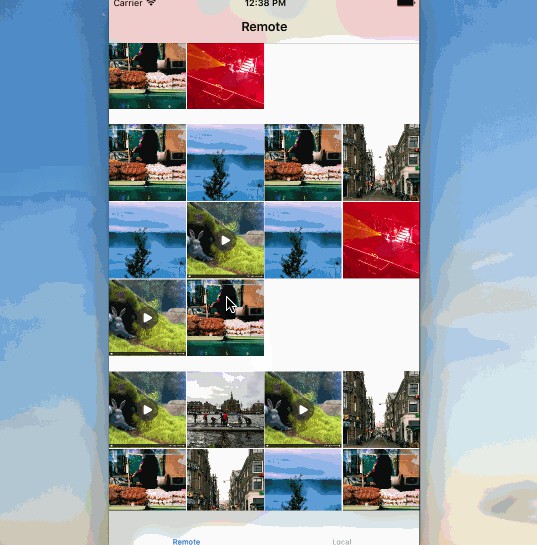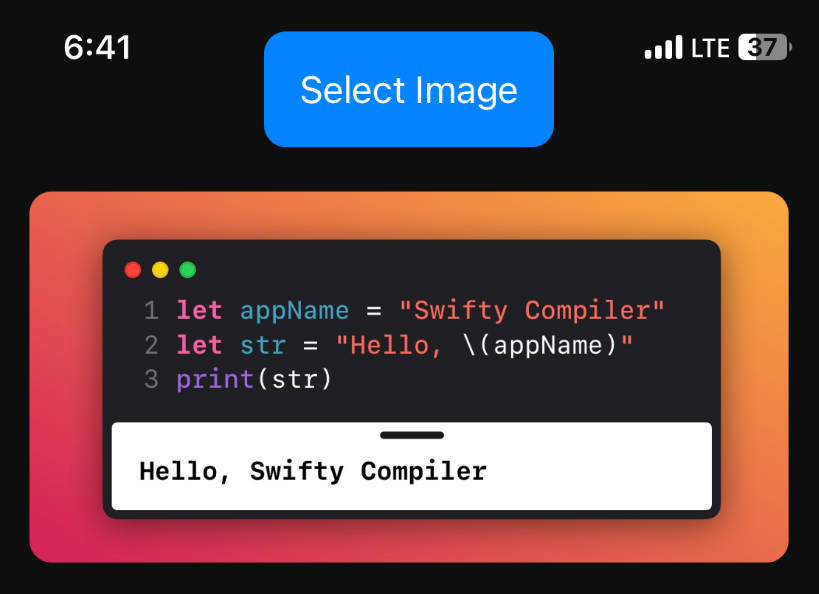?️ RemoteImage
A drop-in alternative to SwiftUI’s AsyncImage, with support for custom URLSessions, caching, and animated phase changes.
Getting Started
Add RemoteImage to your project via Swift Package Manager, and add import RemoteImage where you want to use it.
.package(url: "https://github.com/bdbergeron/RemoteImage", from: "1.0.0"),
Usage
RemoteImage‘s APIs have been designed to make it super easy to adopt in your app/project. In most cases, it’s a simple drop-in replacement for SwiftUI’s AsyncImage.
Check out the RemoteImage Demos app in the Xcode project to see some live exmaples.

Simple Configuration
let imageURL: URL?
/// A simple `RemoteImage` view.
RemoteImage(url: imageURL)
/// A simple `RemoteImage` view with modifier closure.
RemoteImage(url: imageURL) {
$0.resizable().scaledToFit()
}
/// A `RemoteImage` view with a custom placeholder view.
RemoteImage(url: imageURL) {
$0.resizable().scaledToFit()
} placeholder: {
ProgressView()
}
/// A `RemoteImage` view with custom placeholder and failure views.
RemoteImage(url: imageURL) {
$0.resizable().scaledToFit()
} placeholder: {
ProgressView()
} failure: { error in
ZStack {
Color.yellow.opacity(0.3)
Text("Image could not be loaded.")
.font(.caption)
.foregroundStyle(.secondary)
}
}
Advanced Configuration
let imageURL: URL?
let urlSession = URLSession(configuration: .ephemeral)
let imageCache = URLCache(memoryCapacity: 10_000_000, diskCapacity: 0)
/// Image loaded with a custom `URLSession` and using a custom phase transition animation.
RemoteImage(
url: imageURL,
urlSession: urlSession,
configuration: RemoteImageConfiguration(
transaction: Transaction(
animation: .spring(duration: 1.0).delay(0.5))))
{
$0.resizable().scaledToFit()
}
/// Image loaded from a custom cache. If the image is not yet cached, a new `URLSession`
/// will be constructed using the `URLSessionConfiguration.default` configuration
/// and the provided cache instance.
RemoteImage(url: imageURL, cache: imageCache) {
$0.resizable().scaledToFit()
} placeholder: {
ZStack {
Color.black.opacity(0.05)
ProgressView()
}
}




